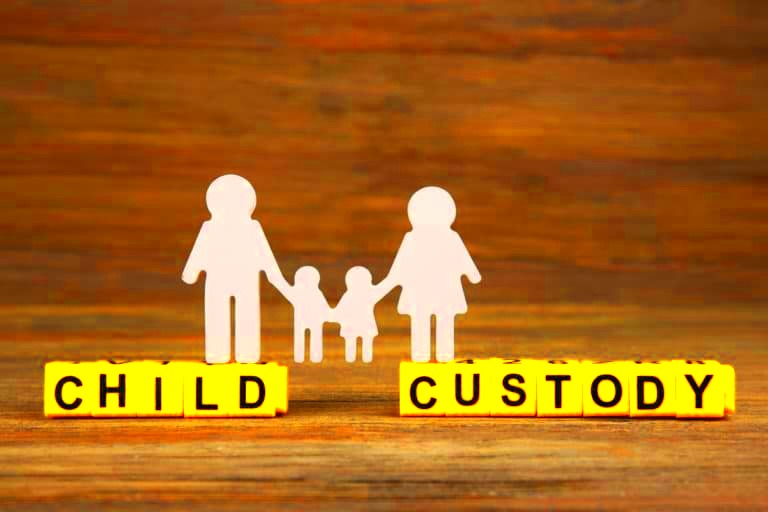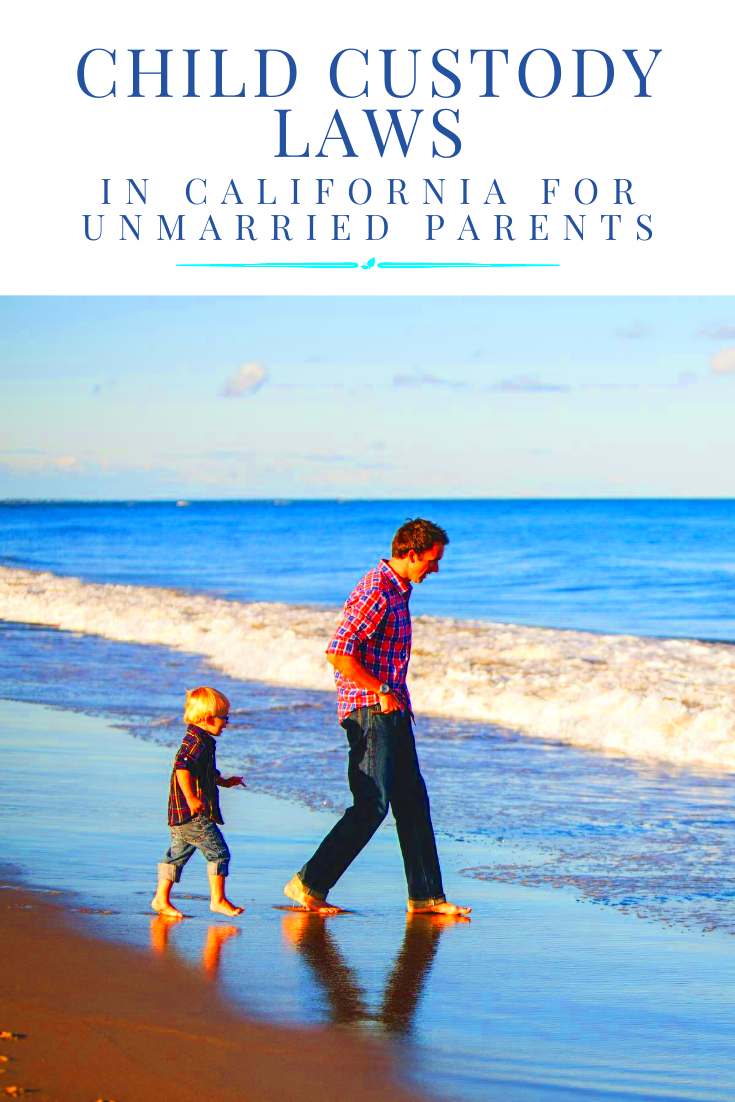Navigating Child Custody Laws for Unmarried Parents in California
In California, unmarried dads often find the issue of child custody to be a tangled affair. In contrast to married couples, single parents may have more legal processes before they are able to request for custody. This notwithstanding, laws exist that empower every father and mother regardless of marital status to apply for custody and visitation rights. If you know your rights and how the system operates, it’s likely that both you and your child will be treated justly.
Types of Child Custody and How They Apply to Unmarried Parents

In California, child custody is divided into two main types: physical custody and legal custody. Each of these plays a distinct role in the child’s upbringing.
- Physical Custody: This determines where the child will live. For unmarried parents, it can either be shared (joint custody) or awarded to one parent (sole custody). Joint custody allows both parents to spend significant time with the child, while sole custody places the child primarily with one parent.
- Legal Custody: This gives one or both parents the authority to make important decisions about the child’s life, including education, healthcare, and religious upbringing. Unmarried parents can also share legal custody or have one parent hold sole legal custody.
An agreement may be reached by parents who are not married concerning child custody arrangements; however, in case of any disagreement, it is for the court to give judgment keeping in mind the best interest of the child. There is no bias against one parent over the other based on sex or marriage state; rather, they put into consideration that which is good for the little one.
Establishing Legal Parentage for Custody Rights

To pursue for custody an unmarried parent must first establish legal parentage (or “paternity”). This is important, because in California, an unmarried father is not always presumed to be the legal father of his child. Parentage establishes father’s right to sue for custody and visitation but also encompasses a duty on the part of both parents to provide for children’s welfare.
A few methods are available for determining parentage in California:
- Voluntary Declaration of Parentage: This is a legal document that both parents can sign to acknowledge the father as the child’s legal parent. It can be signed at the hospital after the child’s birth or later.
- Court Order: If there is disagreement about parentage, a court order may be necessary. This can involve DNA testing to confirm biological parentage.
After parentage has been legally determined, only then may the father apply for custody or visitation rights. In custody cases, even if the male parent has contributed to the upbringing of the child, he does not have legal standing until this stage is achieved.
Steps to Seek Child Custody as an Unmarried Parent

For unmarried parents in California, the procedure for seeking child custody may seem too much to bear, but it is doable when it is decomposed into distinct phases. You can confidently start discussing parenting arrangements because you understand what you should do in order to promote your child’s interests.
The following are the overarching guidelines that should be adhered to:
- Establish Legal Parentage: If you haven’t already, the first step is to establish legal parentage, especially for fathers. This can be done through a Voluntary Declaration of Parentage or a court-ordered DNA test if paternity is contested.
- File a Custody Petition: Once parentage is established, you can file a petition for custody and visitation in family court. This legal document outlines your request for custody and the type of arrangement you believe is in the best interest of your child.
- Attend Mediation: In California, parents are often required to attend mediation before a judge hears the case. Mediation is an opportunity to resolve custody issues amicably, with the help of a neutral third party.
- Prepare for Court: If mediation fails, your case will go to court. Be prepared to present evidence that supports your case for custody, including your ability to provide a stable and supportive environment for the child.
- Follow the Court’s Decision: After hearing both sides, the judge will issue a custody order. If either parent disagrees with the ruling, they can appeal, but they must follow the existing order until the appeal is decided.
By comprehending these steps, being preemptive may aid in ensuring the appropriate custody arrangement for both you and your kid.
Factors Courts Consider in Child Custody Cases

In California, when judges make rulings on custody matters, they always prioritize what would be best for the child involved. The fact that unmarried parents have equal rights to those who are married is irrelevant since there are certain considerations that the judge will take into account when choosing an optimum case of custody.
Among the most significant contributors are:
- The Child’s Health and Safety: The court ensures that the child will be placed in a safe and healthy environment. Any history of abuse, neglect, or substance abuse by either parent will heavily influence the court’s decision.
- Parental Bond and Involvement: Courts look at the emotional bond between the child and each parent. The level of involvement in the child’s life, including education, healthcare, and daily activities, also plays a significant role.
- Co-Parenting Willingness: The ability of each parent to cooperate with the other in making joint decisions for the child’s benefit is crucial. A parent who shows hostility or unwillingness to co-parent may be at a disadvantage.
- Stability of Each Parent’s Home: The court prefers to place the child in a stable environment. This includes considering the physical home, financial stability, and the overall living conditions of each parent.
- The Child’s Preference: If the child is old enough and mature enough to express a preference, the court may take their wishes into account, though this is not the sole factor.
In conclusion, the objective of the court is to establish a custody plan that enhances a kid’s physical and emotional health in their totality.
How Child Support Works for Unmarried Parents
Both unmarried parents need to pay their child’s bills to make sure they are providing sufficient financial support. In California, child support is calculated according to a set of rules that look at how much each parent earns and the time they take care of the child irrespective if they live together or not under custody.
For the most part, here’s how child support usually functions in cases of unmarried parents:
- Calculating Child Support: Child support is calculated using a formula that factors in each parent’s income, the percentage of time the child spends with each parent, and additional expenses like childcare, healthcare, and education.
- Establishing Parentage First: Just like with custody, the non-custodial parent must establish legal parentage before child support is ordered. This ensures that both parents are legally recognized and share financial responsibilities.
- Payment Arrangements: Child support payments are typically made monthly and can be arranged directly between parents or through California’s Child Support Services Department to ensure timely payments.
- Modifying Child Support: If circumstances change—such as job loss, changes in income, or increased expenses—either parent can request a modification to the child support order.
In order to provide him/her with what they need, both mum and dad must contribute financially. The consequences of not paying child support can include wage garnishing for non-compliance or jail time being served instead.
When the unwed parents comprehend the functioning of child support, they will be in a better position to meet their economic responsibilities towards their offspring’s welfare.
Modifying Custody Orders for Unmarried Parents
A custody order is not carved in stone. It must be adjusted since life is dynamic. Therefore, unmarried parents residing in California have options for modifying their custody orders due to issues like work schedule alterations, moving or changes in a child’s requirements. But legal procedures for changing such orders are necessary so that they cater for necessary changes with respect to what serves the best interests of children.
This is the process of modification.
- Significant Change in Circumstances: To modify a custody order, the parent requesting the change must demonstrate a significant change in circumstances. This could be anything from a new job that affects parenting time to concerns about the child’s safety in the current arrangement.
- Filing a Request for Modification: The parent seeking the modification must file a formal request with the court. This document explains why the current custody arrangement is no longer feasible and proposes new terms.
- Mediation: Like the initial custody process, parents are often required to attend mediation to resolve their differences before the case goes to court. Mediation can help parents reach a new agreement without needing a judge to decide for them.
- Hearing Before a Judge: If mediation fails, the case proceeds to court, where a judge will review the new circumstances and decide if a modification is warranted. The judge’s decision will still be based on what’s best for the child.
Legal procedure must be observed in changing custody orders. Informal changes made without the court’s approval may lead to legal complications as well as confusion for both parents and their child yourself.
Frequently Asked Questions About Child Custody for Unmarried Parents in California
When an unmarried parent has to deal with child custody, they usually have several questions. This article will clarify the process by providing answers to the frequently asked questions.
- Do unmarried parents have the same custody rights as married parents? Yes, unmarried parents have the same legal rights to seek custody and visitation as married parents. The court’s main concern is always the child’s best interests, not the parents’ marital status.
- Can fathers get custody if they are not married to the child’s mother? Yes, but the father must first establish legal parentage. Once parentage is confirmed, fathers have equal rights to seek custody or visitation.
- Can custody orders be changed? Yes, custody orders can be modified if there’s a significant change in circumstances. Both parents can request a modification through the court, but the new arrangement must continue to serve the child’s best interests.
- What if we can’t agree on a custody arrangement? If parents cannot agree, the court will step in and decide based on what benefits the child most. Before reaching court, parents are typically required to try mediation.
- Do courts favor mothers over fathers in custody cases? No, California courts do not favor one parent over the other based on gender. Decisions are made based on the child’s needs and the ability of each parent to meet those needs.
Final Thoughts on Navigating Child Custody as an Unmarried Parent
For unmarried parents, custody of children is one of the most problematic legal matters they can face. Nevertheless, navigating this process may be made easy by getting proper information and directions on how to go about it.Navigating through this terrain smoothly is all about understanding your rights and giving legal parentage where necessary, as well as making sure that whatever is done favors the needs of the child. As such, both parents may come together towards achieving equitable custody arrangements that work for everybody in the family as a whole.
Every single case is distinctive so keep this in mind. Getting professional legal assistance can give you insight into available alternatives and guide you toward making informed decisions. In everything – whether it involves reaching an accord on child custody arrangements, altering current ones or delving into the topic of spousal support – the primary objective must always remain focused on ensuring the happiness of your kid.


